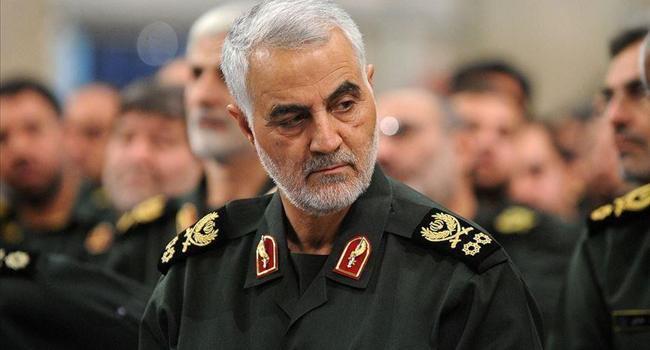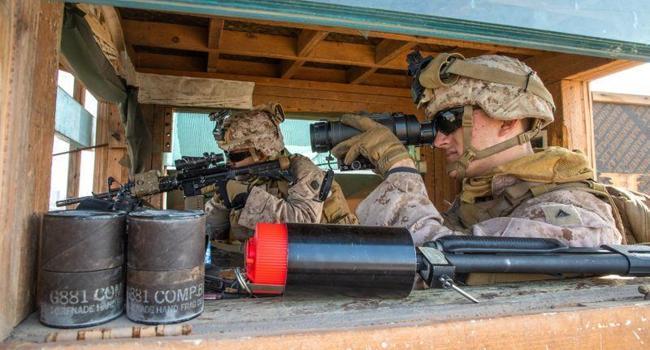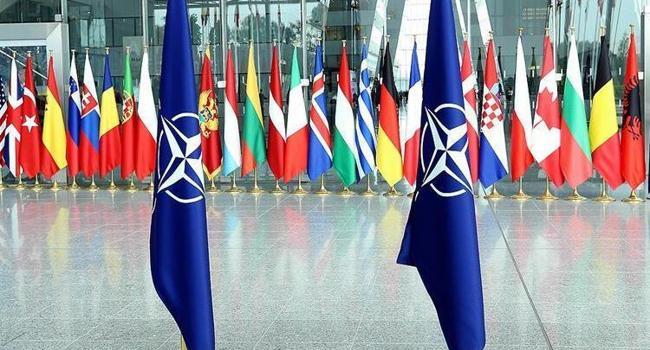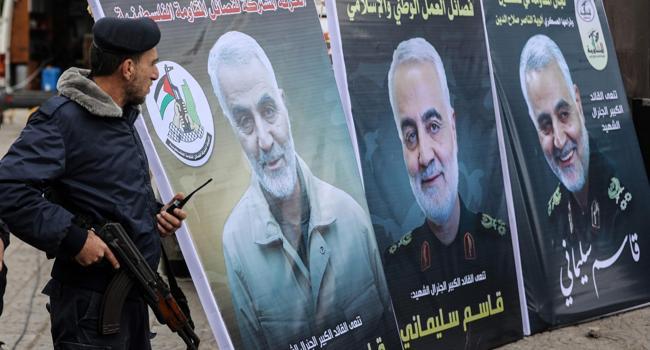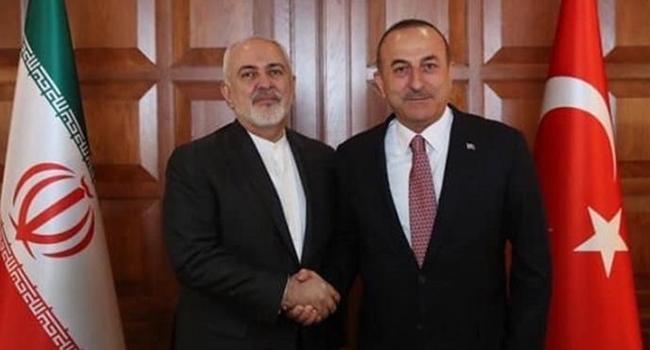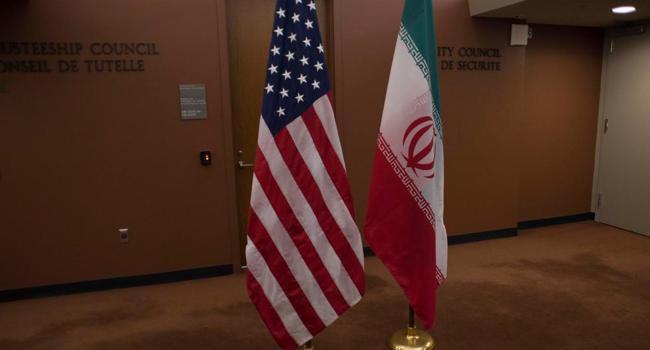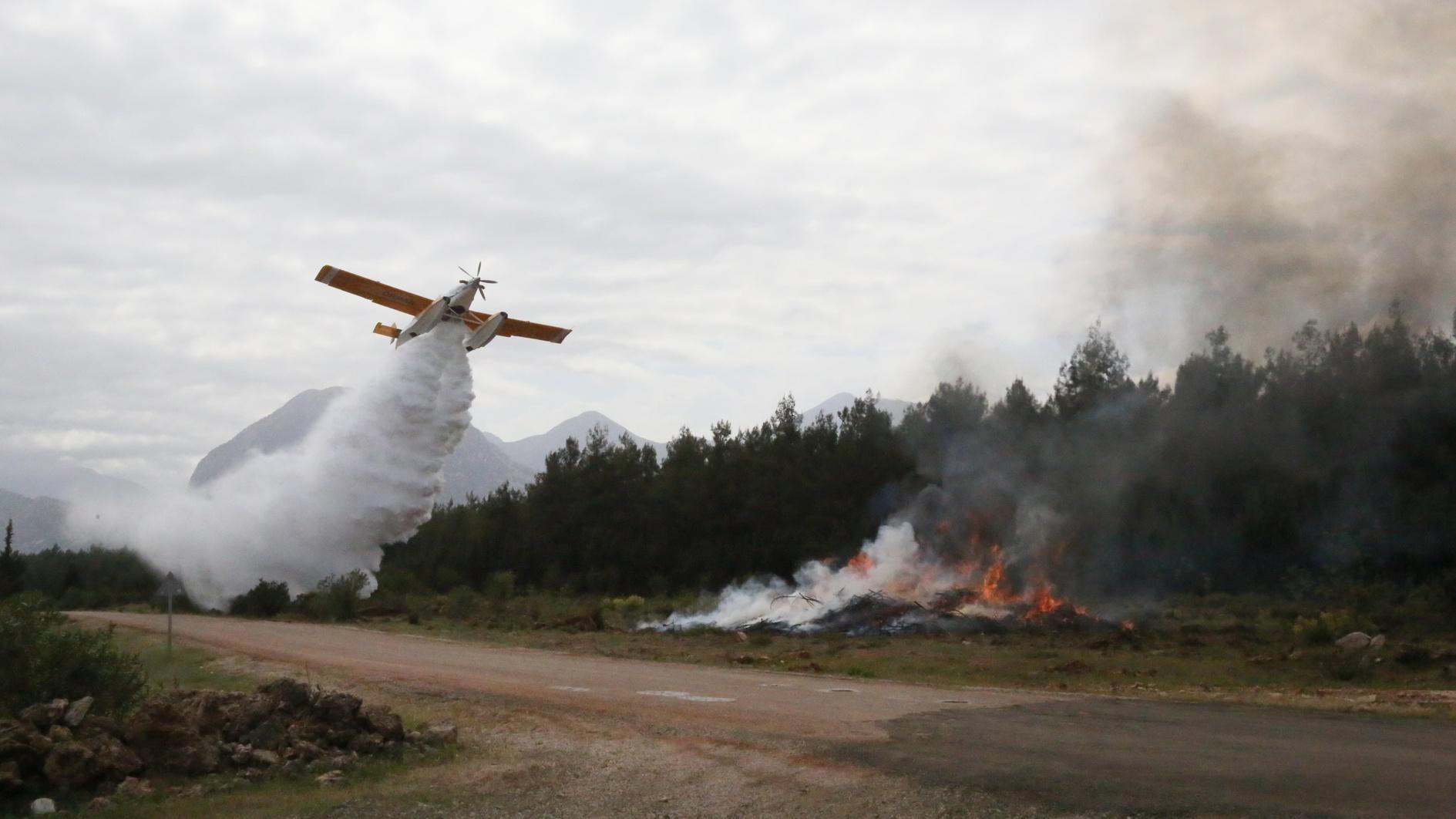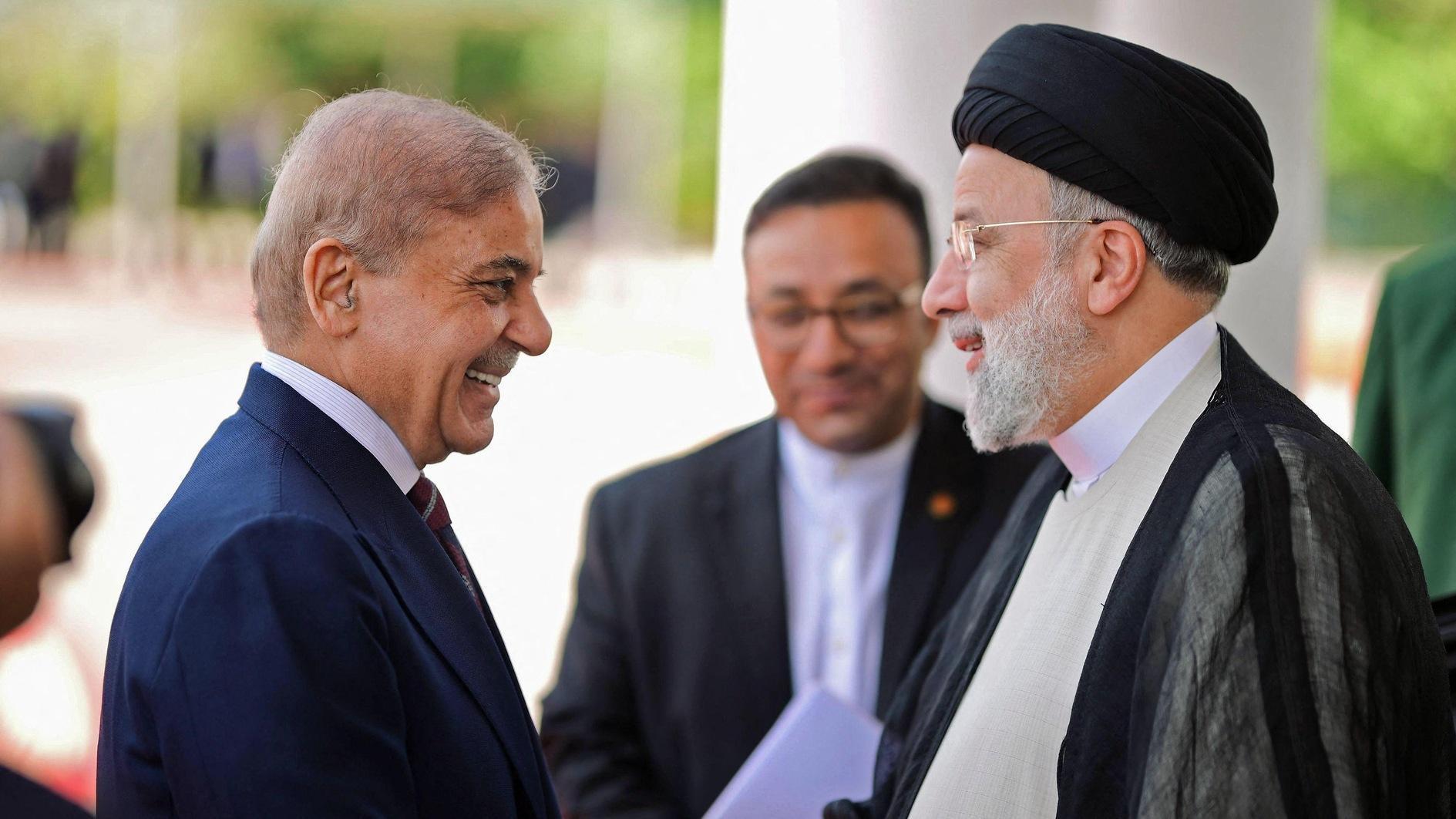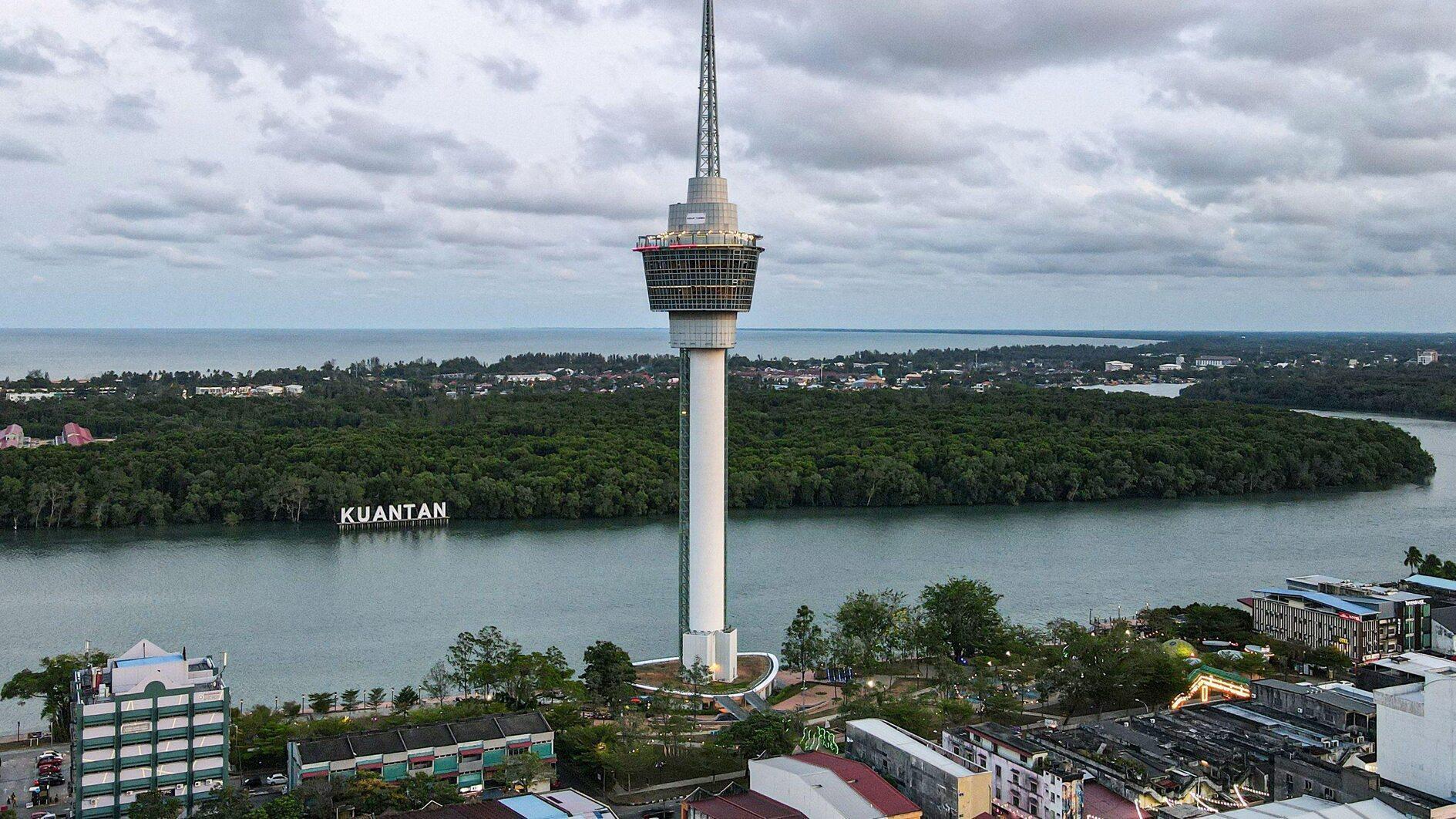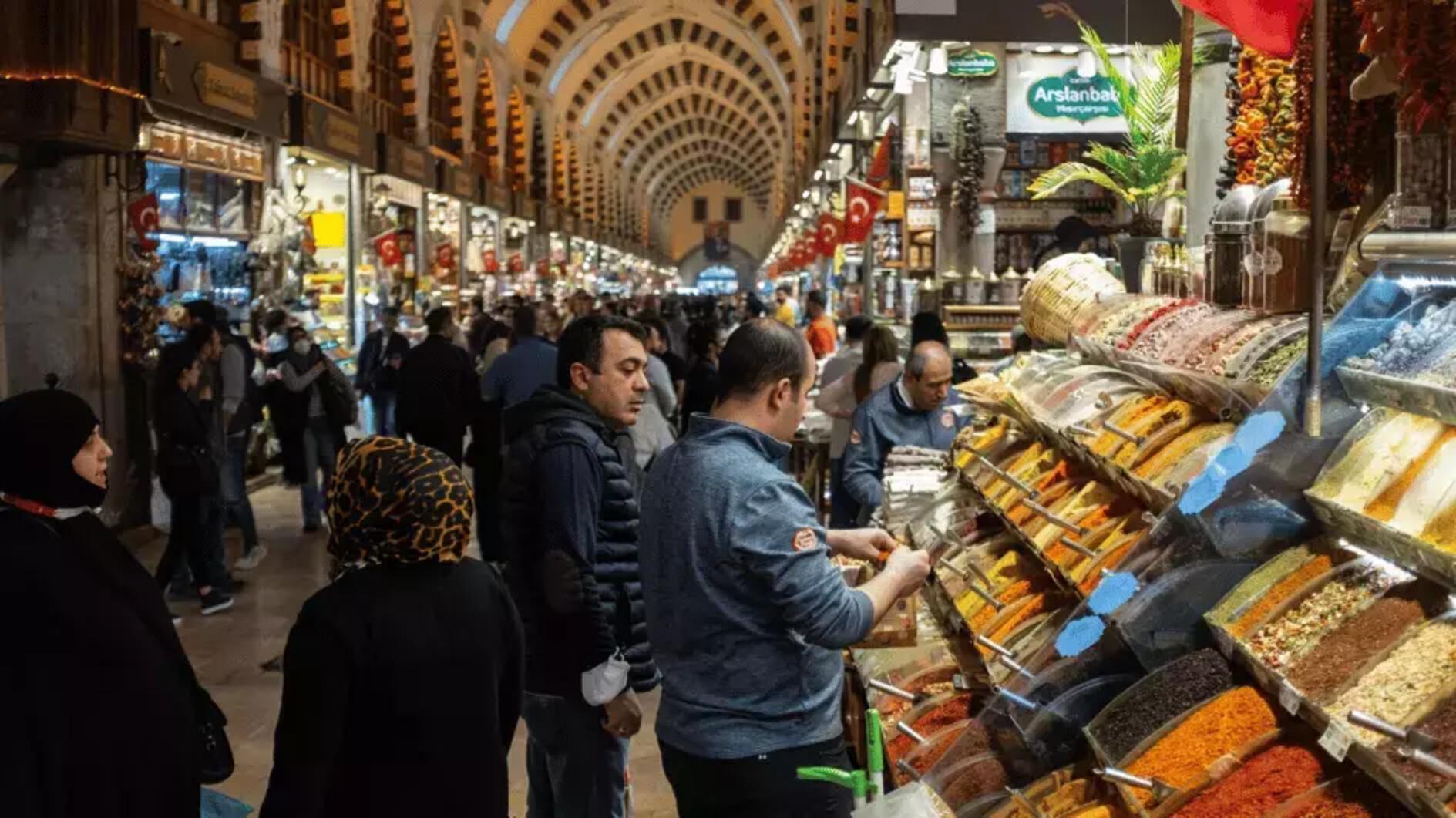US deploys troops, Iran vows 'revenge' after Soleimani death
WASHINGTON
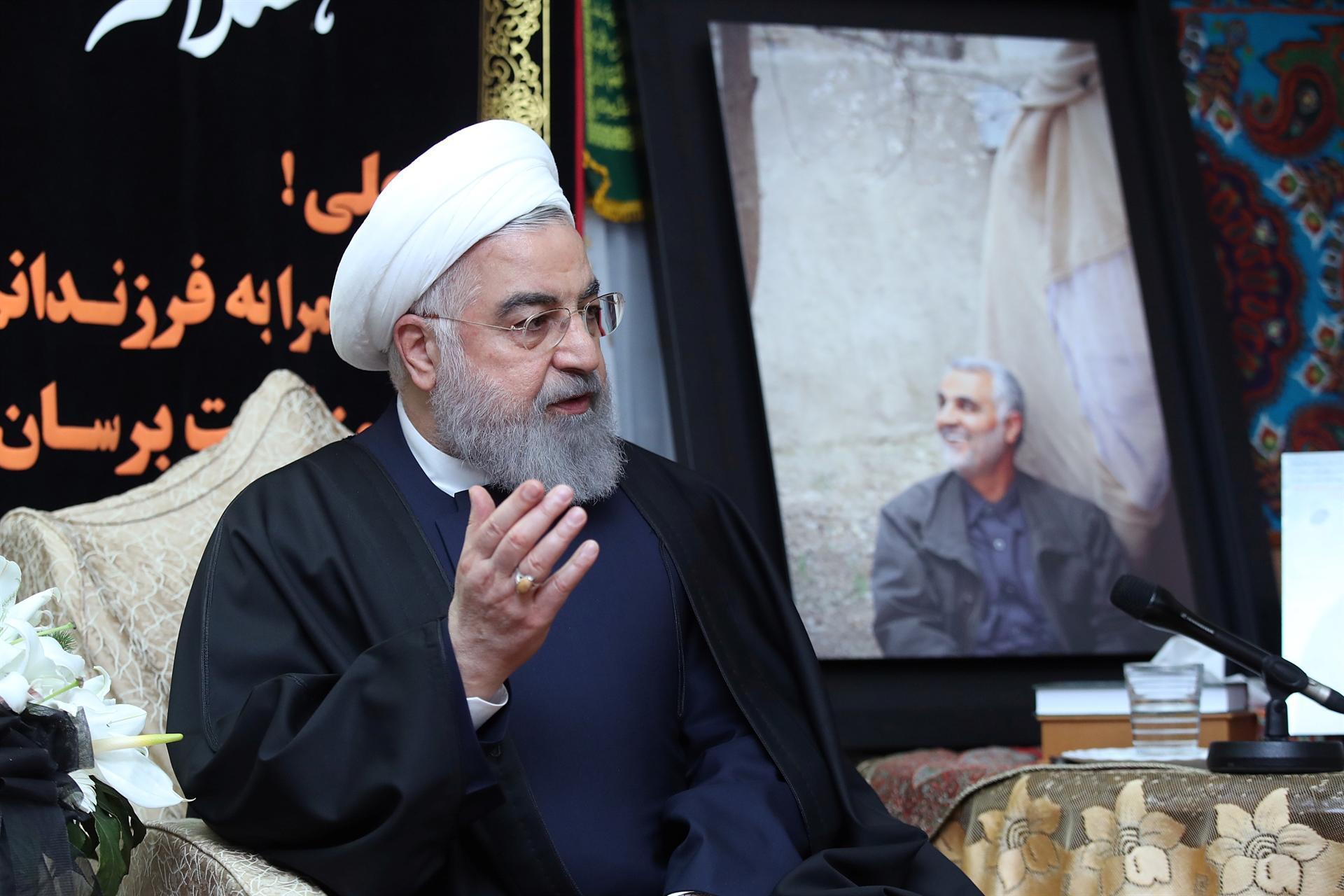
Thousands more U.S. troops were ordered to the Middle East on Jan. 3 after the United States assassinated Iran's military mastermind and Tehran promised "severe revenge."
President Donald Trump said top Iranian general Qasem Soleimani was "terminated" when he was on the verge of attacking U.S. diplomats but he insisted that Washington is not seeking to topple Iran's government.
"Soleimani was plotting imminent and sinister attacks on American diplomats and military personnel, but we caught him in the act," Trump said in Florida.
While referring to the key Iranian figure, killed in a U.S. air attack earlier on Jan. 3 in Iraq's capital Baghdad, as "sick," Trump attempted to lower tensions by insisting that he does not want war with Iran.
"We did not take action to start a war," he said, adding: "We do not seek regime change."
U.S. officials said Suleimani, 62, was killed by a missile fired from a drone when he was near Baghdad's international airport.
Five Revolutionary Guards were killed, along with five members of a pro-Iranian paramilitary force in Iraq, the Hashed al-Shaabi, including their deputy chief.
Iran named a replacement for Soleimani -- his previous deputy, Esmail Qaani.
Soleimani had long been considered a lethal foe by U.S. lawmakers and presidents. The last straw was an attack by a pro-Iranian mob in Baghdad against the U.S. embassy this week.
Demonstrators managed to burn part of the compound, besieging diplomats inside.
Trump said Soleimani should have been killed "many years ago."
But previous presidents have held back from what they feared would be an overly provocative step against Iran, which has been in tense confrontation with the United States and its main regional ally Israel for decades.
For Trump, who is campaigning for reelection on a platform of getting out of wars, the situation is high risk.
3,500 troops to be sent to Kuwait
And having repeatedly claimed to be pulling U.S. troops out of conflict zones, Trump sent more soldiers into the Middle East.
A Pentagon official said 3,000 to 3,500 troops from the 82nd Airborne Division's Global Response Force, which already had sent hundreds of reinforcements earlier this week, will go to Kuwait.
Some 14,000 other troops have already been deployed as reinforcements to the Middle East this year, reflecting steadily growing tensions with Iran.
Signaling growing threats to the approximately 5,200 US troops still in Iraq, a leading Hashed member, Hadi al-Ameri, urged lawmakers there "to oust foreign troops... because their presence has become a threat."
Furthermore, the U.S. and its allies have suspended training of Iraqi forces due to the increased threat, the German military said in a letter seen by Reuters late on Jan. 3.
The U.S. embassy in Baghdad urged all American citizens to leave Iraq immediately and U.S. nationals working at southern oil fields were being evacuated, Iraq's oil ministry said.
Tehran to seek 'revenge'
Iran, smarting from the loss of arguably the second most important leader in the country, erupted.
As head of Iran's Revolutionary Guard Corps' foreign operations arm, Soleimani was a powerful figure domestically and pointman for sophisticated and wide-ranging Iranian involvement in regional power struggles -- and anti-U.S. forces.
Iran's supreme leader Ayatollah Ali Khamenei swiftly promised "severe revenge" and tens of thousands of protesters in Tehran torched U.S. flags and chanted "death to America."
"A bitter revenge is awaiting the criminals," Khamenei said in a statement.
"There is no doubt that the great nation of Iran and the other free nations of the region will take revenge on this terrible crime by the U.S.," President Hassan Rouhani was quoted by the state-run news agency IRNA as saying.
Iranian Foreign Minister Mohammad Javad Zarif too slammed the U.S. strike as "extremely dangerous and a foolish escalation," as Khamenei declared three days of mourning.
Turkish, Iranian top diplomats talk over Soleimani's killing

The Iranian ambassador to the United Nations described the killing of one of his country's top generals as an act of war, U.S. media reported late on Jan. 3.
Speaking to CNN late on Jan. 3 night, Iranian ambassador Majid Takht Ravanchi said: "In fact was an act of war on the part of the United States and against Iranian people."
"Last night they (the U.S.) started a military war by assassinating by an act of terror against one of our top generals. So what else can be expected of Iran to do? We cannot just remain silent. We have to act and we will act," he said.
"We can't just close our eyes to what happened last night. Definitely there will be revenge, a harsh revenge."
"The response for a military action is a military action. By whom, by when, where? that is for the future to witness," he ended the interview by stating.
The remarks follow Trump, speaking on Jan.3 night to Evangelical supporters in Miami, saying that Soleimani was planning "a very major attack" and that he had been preparing multiple "attacks against Americans".
Iranian commander raises the prospect of possible attacks in the Gulf
Iran will punish Americans wherever they are within reach of the Islamic Republic, Tasnim news agency quoted a senior Revolutionary Guards commander as saying.
Iran reserved the right to take revenge against the United States for the death of Soleimani, General Gholamali Abuhamzeh said in comments made late on Jan. 3 and reported on Jan. 4 by Tasnim.
"The Strait of Hormuz is a vital point for the West and a large number of American destroyers and warships cross there ... vital American targets in the region have been identified by Iran since long time ago ... some 35 U.S. targets in the region as well as Tel Aviv are within our reach," he said.
NYC bracing for Iranian retaliation
New York City security officials went on heightened alert for possible Iranian retaliation in response to the killing of Soleimani, Mayor Bill de Blasio said.
The city is constantly vigilant against possible terrorist attacks given its history but the mayor said the threat has changed significantly given the resources that a state such as Iran has compared to non-state organizations like al Qaeda or ISIL.
"It's just a world of difference," de Blasio told a news conference.
"We have to assume this action puts us in a de facto state of war," the mayor said.
De Blasio and senior police officials called the news conference as Iran promised vengeance.
The New York Police Department has intelligence and counterterrorism divisions and officers stationed at 14 foreign posts, all of which have been well-funded since the attacks of Sept. 11, 2001, that destroyed the Twin Towers of the World Trade Center.
New York officials consider the city the most enticing target for a terrorist attack in the U.S. and police go on heightened alert whenever there is political violence against civilians in the United States or abroad.
Police Commissioner Dermot Shea said officers were already on "heightened vigilance" and that New Yorkers could expect to see more uniformed officers, some heavily armed with long guns, at sensitive areas.
He did not specify what those were but a heavy police presence is typically seen on the subway, other mass transit, and tourist attractions when police go on heightened alert.
World reacts to Soleimani killing
Iraqi Prime Minister Adel Abdel Mahdi called the strike a "flagrant violation" of a security accord with the U.S., warning it would "spark a devastating war in Iraq."
Paramilitary figures in Iraq including U.S.-blacklisted Qais al-Khazali and militiaman-turned-politician Moqtada Sadr called on their fighters to "be ready."
And in Lebanon, the leader of the Tehran-backed Shiite movement Hezbollah, Hassan Nasrallah, warned of "punishment for these criminal assassins."
But there were daring celebrations in Baghdad's Tahrir Square, the epicenter of a three-month-old protest movement against government corruption and Iranian influence.
Turkey also voiced concern saying taking unilateral steps can jeopardize the stability in the region.
“We are deeply concerned about the escalating U.S.-Iranian tension in the region. In particular, we strongly emphasize the warning that turning Iraq into a conflict zone will harm both the peace and stability of both Iraq and our region,” said the foreign ministry said in a written statement.
In Syria, Soleimani’s killing caused different reactions.
“The killing of terrorist Soleimani, who is responsible for the massacres and deportations of Syrians, represents the end of a war criminal who is responsible for violations against civilians in Syria,” the National Coalition of Syrian Revolution and Opposition Forces said in a statement.
However, the ruling Assad regime “strongly” condemned the killing of Soleimani and al-Muhandis, Syria's official news agency SANA cited an anonymous official as saying.
Israeli Prime Minister Benjamin Netanyahu praised Trump "for acting swiftly, forcefully and decisively," as the Jewish state braced itself for possible reprisal attacks.
In the meantime, Russian President Vladimir Putin and his French counterpart on Jan. 3 voiced concern.
"Both sides expressed concern over the death of the commander of the Iran's Revolutionary Guards Corps’ Quds Force Qassem Soleimani, as a result of a U.S. missile attack on the airport in Baghdad. It is stated that this action can seriously aggravate the situation in the region," Kremlin said in a statement.
The Russian Defense Ministry said in a separate statement the strike will lead to "a sharp escalation in the region," and praised Soleimani as "a competent military leader, who had a well-deserved authority and considerable influence in the entire Middle East region.”
He was a "founder of armed resistance" to ISIL and al-Qaeda terror groups in Syria and Iraq, it said.
"His personal achievements in the fight against Daesh in Syria are undeniable. The U.S. short-sighted steps, taking form in the murder of General Qassem Soleimani, lead to a sharp escalation of the military-political situation in the Middle East region and serious negative consequences for the entire international security system," the ministry said.
The ministry also said the deadly U.S. airstrike does not contribute to easing tensions in the Middle East that is torn by armed conflicts.
Europe warns against escalation in the conflict
“We have always recognized the aggressive threat posed by the Iranian Quds force led by Qasem Soleimani. Following his death, we urge all parties to de-escalate. Further conflict is in none of our interests,” U.K. Foreign Secretary Dominic Raab said on Twitter.
German government spokesman Ulrike Demmer voiced his concern and said regional problems can be only solved diplomatically and Germany is in contact with allied countries.
President of the European Council Charles Micheal said further escalation must be stopped.
“The cycle of violence, provocations and retaliations which we have witnessed In Iraq over the past few weeks has to stop. Further escalation must be avoided at all cost,” he said.
“The risk is a generalized flare up of violence in the whole region and the rise of obscure forces of terrorism that thrive at times of religious and nationalist tensions,” he added.
NATO spokesperson Dylan White told Turkey's state-run Anadolu Agency that “NATO is monitoring the situation in the region very closely. We remain in close and regular contact with the U.S. authorities.”

